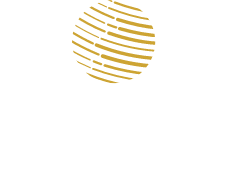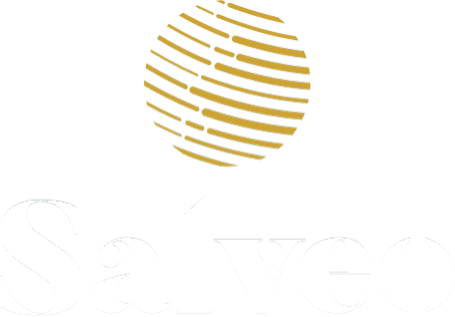Recruiting in Italy

Context
Italy, a member of the euro zone, offers a dynamic labor market environment, influenced by a diversified economy. Between its rich cultural heritage and economic centers such as Milan and Turin, the recruitment process in Italy is shaped by economic, legislative and social factors. Strict labor laws, the valuing of education and skills, and the importance of professional networks are all helping to shape the recruitment landscape. Understanding these aspects is essential for job seekers and employers looking to prosper in the Italian labor market.
Italy's most popular recruitment channels
Before launching a recruitment process in Italy, it's important not only to write ads that arouse interest, but above all to choose the right channels to reach the best candidates. The most popular recruitment channels in Italy are :
- Social networking platforms : In Italy, companies are increasingly using social media to identify talent and establish links with future employees. LinkedIn is the most frequently used platform for this purpose.
- Job boards : Websites such as Indeed, Infojobs, Monster, Trovolavoro, (the job board of the daily newspaper Corriere della Sera), Almalaurea (inter-university consortium serving as a bridge between university and the world of work), ticonsiglio.com ... .
Newspapers such as Il Sole 24 Ore, La Repubblica and others also publish job advertisements.
- Personal recommendations: Many workers in Italy rely on their personal connections to find job opportunities.
Candidate interviews
During interviews, it's crucial to create a friendly atmosphere. However, it is forbidden (Art. 8 of the Workers' Statute) to ask candidates about their political or religious opinions. It is forbidden (Article 27 of the Equal Opportunities Code) to ask whether a person is engaged, married, has children or wishes to have children.

Anti-discrimination legislation in Italy
In Italy, the law prohibits all forms of discrimination, whether direct or indirect, in the field of employment. To ensure compliance during the hiring process, it is imperative to follow the guidelines below: Focus on the candidate's skills and experience during the interview. Avoid including terms such as "recent graduate" or "highly experienced" in job advertisements. Instead, ask for "junior profile" or "senior profile". Don't take a candidate's union activities into account as a decisive criterion during the recruitment process.
Mandatory employer notifications
When a salaried employee is hired, the employer is required to make a single electronic declaration to the local Employment Centre. This declaration, known as UNILAV, replaces all previous communications with INPS, INAIL, the prefecture and the other social security bodies concerned (for salaried workers, the Contrat de Séjour is no longer required). This declaration must also be made in the event of transformation, extension, transfer or secondment of the employee to another company, or termination of the employment contract.
What you need to know before hiring in Italy
Before recruiting staff in Italy, it’s essential to understand the country’s labor standards and regulations. Here are a few points to consider:
Top job sectors in Italy
Most jobs in Italy are concentrated in the major northern cities of Milan, Turin, Bologna, Venice and Genoa, and in the central cities of Florence and Rome. However, finding a permanent job in the industry can be more difficult than temporary tourism-related opportunities. The technology and engineering sectors are in demand, due to the emigration of talent abroad, creating significant gaps in these fields.
Types of employment contracts in Italy
In Italy, there are several types of employment contracts:
– Fixed-term employment. (36 months)
– Learning. (from 6 months to 3 years for employees between the ages of 18 and 29)
– Staff hire. (by employment agencies, e.g. Adecco, GI, Manpower, etc.)
– Occasional services. (maximum €10,000/year)
– Smart working
– Part-time work.
– On-call work. (for under 24 or over 55. Only to cover higher-than-usual workloads)
The apprenticeship contract is certainly one of the most advantageous for both the company and the worker. Both benefit from a substantial reduction in social security contributions over a three-year period. This represents a saving of around 15% on the contributions payable.
Working hours in Italy
The maximum working week in Italy is 40 hours. Overtime is capped at 250 hours per year.
Notice period
Depending on type and length of service :
CCNL Metalmeccanici :
Up to 5 years’ service
executives and first-class employees: 2 months’ notice
lower categories: 7 days ;
5 to 10 years’ service
executives and first-class employees: 3 months’ notice
lower categories: 15 days’ notice.
Over 10 years’ seniority
executives and first-class employees: 4 months’ notice
lower categories: 20 days’ notice
CCNL Commerce :
Up to 5 years’ service
executives and first-class employees: 45 days’ notice
lower categories: 10 days ;
5 to 10 years’ service
executives and first-class employees: 60 days’ notice
lower categories: 15 days’ notice.
Over 10 years’ seniority
executives and first-class employees: 90 days’ notice
lower categories: 15 days’ notice
Paid vacations
Employees in Italy are entitled to at least four weeks’ paid annual leave. They have the option of taking sick leave, personal leave or parental leave (maternity/paternity or adoption). However, the number of public holidays and paid leave may vary depending on the sector of activity.
Spoken languages
Italian is the official language in Italy, but English is widely spoken as a second language. Although only 1.31% of Italians speak English as their mother tongue, 12.43% speak it as a second language. Most Italian high school students study English, the second most studied language is French (67% ), followed by Spanish and German.
Compensation
In Italy, the remuneration system provides for thirteen to fourteen salaries per year, depending on national collective agreements. The thirteenth month is paid in December, and the fourteenth month (if applicable) in June, in accordance with Italian law. On average, the Italian monthly salary is around 2,600 euros (gross), but this estimate can vary significantly depending on region, sector of employment and level of experience + TFR (Indemnités de fin de contrat).
Optimize your recruitment processes in Italy by calling on the expertise of local professionals
Salveo takes care of all the administrative and operational aspects of recruiting your future employee. We are here to facilitate the various stages of the recruitment and headhunting process in Italy, including :
- Work closely with your teams to define the ideal profile, taking into account the skills, experience and corporate culture required.
- Conduct in-depth searches on various job boards, social networks and other open sources to identify potential candidates. In the absence of non-bidding agreements, we are also able to directly contact candidates already working for similar companies, using a headhunting approach in Italy.
- Carefully select the most relevant profiles for interviews, writing detailed reports and passing them on to your teams to facilitate decision-making.
- Conduct thorough background checks on candidates, ensuring the accuracy of the information provided and assessing their moral integrity, to ensure you recruit reliable, well-qualified professionals for the positions available.
When you choose Salveo, you’re guaranteed access to a top-quality recruitment service, fully customized to meet your specific requirements. We work closely with you to find the perfect candidate, one who will be a valuable asset to your team and your success.
Receive your personalized study
+33 (0)1 84 79 17 50
09h - 18h UTC+1
22 rue Georges Picquart75017 Paris



